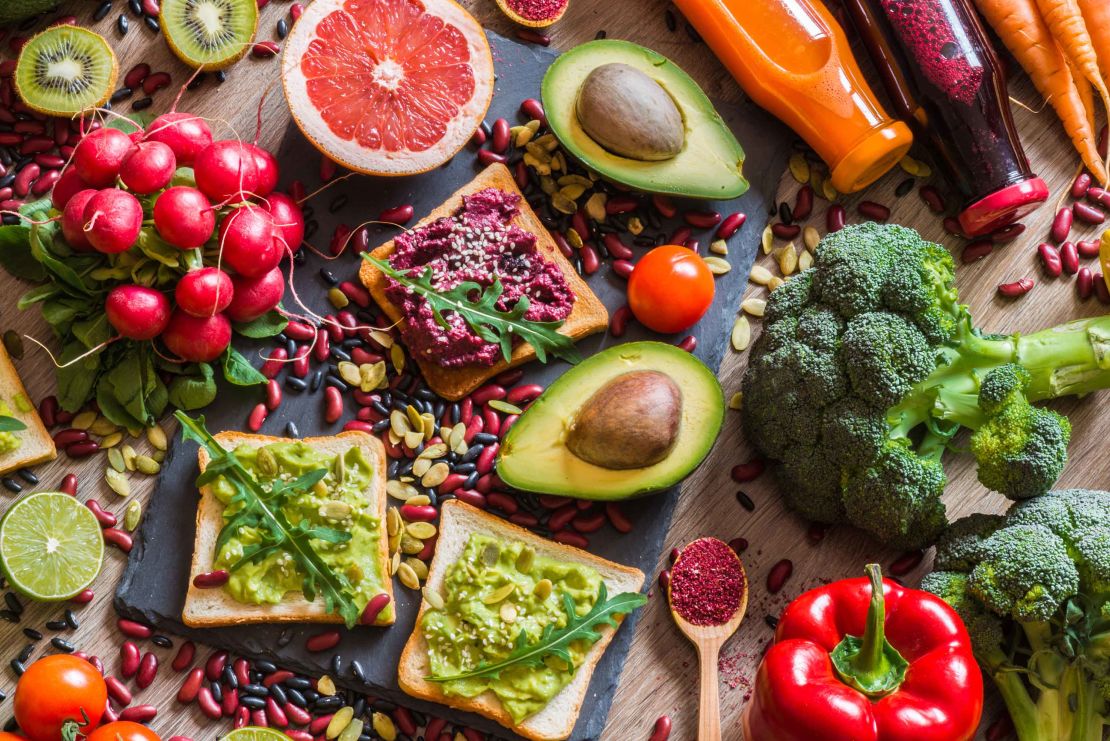Happy World Vegan Day!
Friday, November 1 marks 75 years since the founding of The Vegan Society by English animal rights advocate Donald Watson and his associates, who defined and popularized modern veganism.
Vegans follow a plant-based diet, which means they don’t eat meat, and don’t use or consume animal products.
Celebrities like Lewis Hamilton, Miley Cyrus, Ariana Grande and Venus Williams all stick to a plant-based diet.
So, why are people going vegan?
It’s good for the planet

Scientists say we must immediately eat less meat and change the way we manage land in order to halt the climate crisis.
A climate change report published by United Nations scientists in August said eating less meat and reducing food waste could slash global greenhouse gas emissions and benefit our health and the environment.
The Intergovernmental Panel on Climate Change, which published the report, says humans affect about 70% of ice-free land on Earth, and the panel previously concluded that changing our diets could contribute 20% of the effort needed to keep global temperatures from rising by 2 degrees Celsius above pre-industrial levels.
Meat consumption is a big contributor to global warming – according to the World Wildlife Fund (WWF), agriculture is responsible for around a quarter of humankind’s direct, global greenhouse gas emissions – with livestock contributing about 14.5%.
Raising animals for food is resource-intensive, requiring the production of feed and fertilizers that result in greenhouse gases – not to mention the methane that comes from cows.
Livestock farming also requires land to be cleared – according to the WWF, around 17% of the Amazon forest has been lost in the past 50 years, with most losses due to forest conversion for cattle ranching.
Beef and soy are the leading contributors to global deforestation, while the production of meat, dairy, poultry and seafood also contributes to habitat loss and water use, WWF says.
It could be good for your health
Many people adopt a vegan diet because of its health benefits.
Sticking to a plant-based diet could help lower your risk of type 2 diabetes, a study released in July suggested.
“We found that eating plant-based diets was associated with, on average, 23% reduction in diabetes risk,” said Dr. Qi Sun, an associate professor in the Department of Nutrition at the Harvard T.H. Chan School of Public Health in Boston and senior author of the paper published in the journal JAMA Internal Medicine.
Meanwhile, another study published in the Journal of the American Heart Association found that sticking to an overall plant-based diet or a diet that includes more plant foods than animal foods could be associated with a 16% lower risk of cardiovascular disease and up to 25% lower risk of early death.
Animal welfare
Some people choose to be vegan for animal welfare reasons – according to UK animal rights organization Animal Aid, going vegan “is one of the best things you can do to help end animal cruelty.”
Some abstain from eating meat because they disagree with the slaughter of animals. They may choose to adopt a fully vegan diet because they believe the conditions that animals are kept in to produce popular food items – like meat, eggs, milk, cheese and honey – contribute to the creatures’ suffering.
Being vegan is easier than ever

Veganism may once have been seen as a tricky diet to cater for, but now restaurants are offering vegan dishes, and supermarkets are bursting with plant-based alternatives in developedcountries around the world.
And those who still crave a fast food fix are having their prayers answered.
KFC launched a vegan burger in the UK in June, McDonald’s started offering meatless burgers in Germany, and in the US, Burger King announced that it was expanding distribution of its popular meat-free Impossible Whopper burger to 100 locations in the San Francisco Bay Area.
US retail sales of plant-based foods have grown 11% in the past year, according to a July report from trade group Plant Based Foods Association and the Good Food Institute — a nonprofit that supports plant-based businesses. Investment bank Barclays predicts the alternative meat sector could reach about $140 billion in sales over the next decade, capturing about 10% of the global meat industry.
CNN’s Michael Nedelman, Lisa Drayer, Jacqueline Howard, Danielle Wiener-Bronner and Isabelle Gerretsen contributed to this report.



